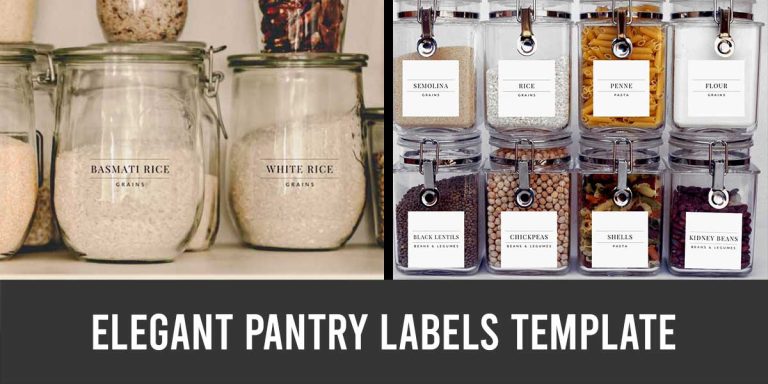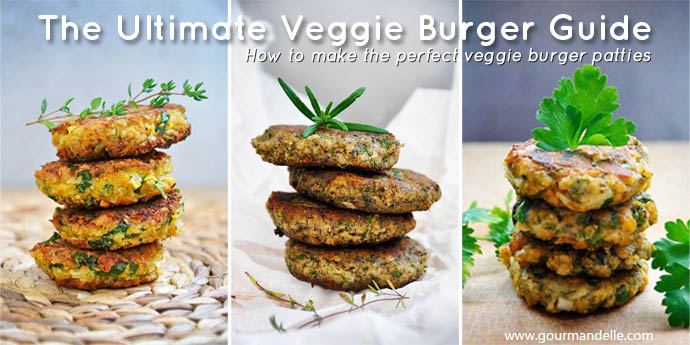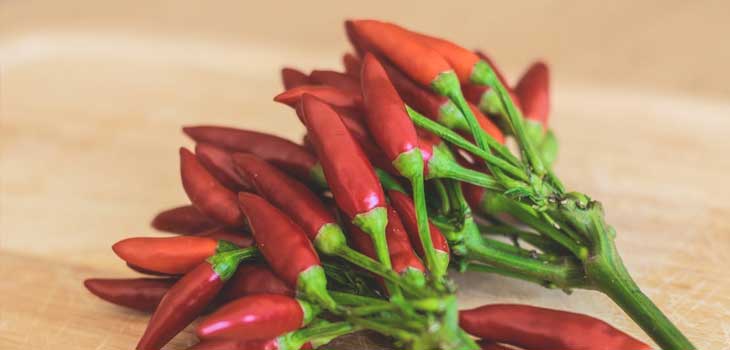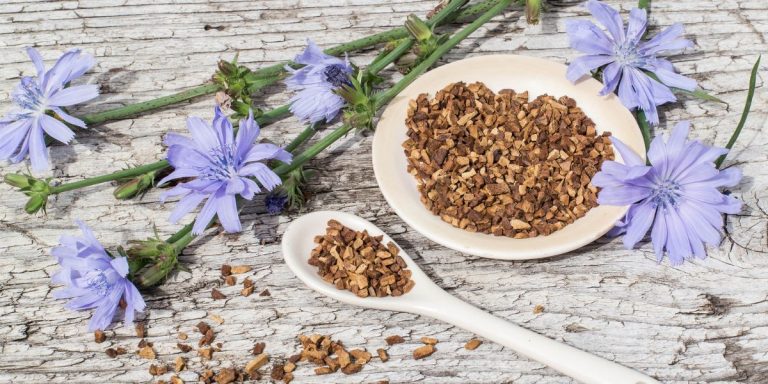Proteins in the Vegan Diet | Guide
Are you considering adopting a vegan diet? Here’s everything you need to know about proteins in the vegan diet from this comprehensive guide!
Contents:
- What are proteins?
- Understanding protein requirements
- List of best plant-based proteins
- Guide to meeting the protein requirements
- Vegan protein supplements
- Bottom Line
Can plant-based diets provide the necessary proteins required for human beings?
Each day, an increased number of people are adopting the vegan diet. The primary concern among this group is if they would be getting all the required nutrients for their body on a plant-based diet alone. More specifically, if vegan foods can provide the proteins that human beings require, that is otherwise generally received through the meat.
The answer is YES.
What are proteins?
The human body contains a range of proteins each with an individual function. These proteins are a primary building block in our body that help the proper operation of our cells, tissues, and organs. Because of this, there is a concern that people adopting a vegan diet may lack crucial ingredients that the body requires.
But, proteins can be found in almost all non-animals foods.
Proteins are made of amino acids. It is the arrangement of these amino acids that form different types of protein and perform the functionalities. There are over 20 different types of amino acids that the human body requires in order to form proteins. Our body has the ability to produce 11 of these proteins. They are known are non-essential amino acids. The rest of the amino acids have to come from our food intake. Although meat, dairy, and eggs are foods that have all the essential amino acids, most of these can also be found in plant-based foods.
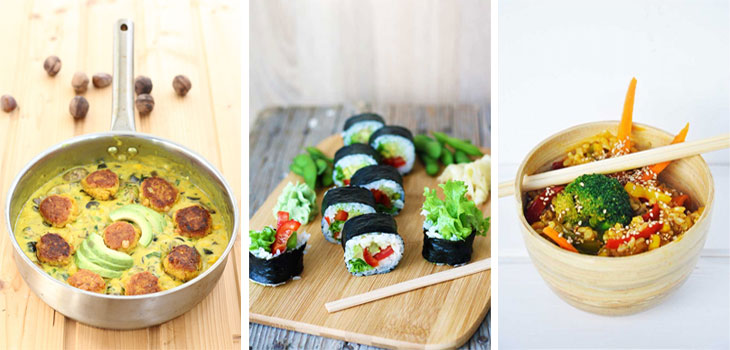
Understanding protein requirements
According to the Recommended Dietary Allowance (RDA), human beings need 0.8 grams of protein per kg or 0.36g / pound that we weigh.
Calculating daily protein requirements
Let us take the example of an average vegan male. You can use the example given below to calculate the minimum protein needs for their body. This is how you would calculate the protein needs:
174 pounds (weight of the person) x 0.36 grams/pound = 62,64 grams of protein.
It is important to note that in the case of proteins, more doesn’t always mean better.
The myth behind complete and incomplete proteins
People believe that the need to combine and complement proteins makes the understanding of proteins requirements more complex. This is where the idea of complete and incomplete proteins was born.
The notion of needing to combine proteins is a common myth.
This myth was popularized when Frances Moore Lappé in her 1971 book, Diet for a Small Planet, stated that plant-based foods do not have complete proteins. They lack a couple of essential amino acids that make them incomplete proteins. While proteins such as eggs, cow’s milk, meat, and fish are high-quality protein (high in amino acids), protein from foods such as grains (low in lysine, an essential amino acid) and legumes (low in methionine, another essential amino acid) may be missing one or two amino acids. Therefore, in order to remain healthy as a vegetarian, it was required to combine plant-based protein foods in a particular way to achieve a ‘complete protein’ intake.
In the book, Lappé encouraged combining foods with low amino acids with other foods in order to attain the perfect and favorable amino acid mix. The process explained in the book was tedious and complicated. Because of the effort involved in this process, individuals wanting to adopt a vegan lifestyle felt discouraged. And this led to the general impression that all plant-based proteins lack one or two of the required amino acids.
With the advancement in food and nutrition science, it was proved that this is not the case. There are many plant-based foods that are also high in protein. Soybeans, quinoa, tofu, beans, and spinach are a few such examples. Later, Lappé retracted her theory by stating that in order to combat the myth that meat was the only way to get high-quality protein, she reinforced another myth and gave the impression that to get enough protein without meat, considerable care was needed in choosing foods. She also stated that the reality of protein intake in a vegan diet was much easier than she thought.
Thus today, with this myth broken, there is much progress being made in understating vegan diets better each day.
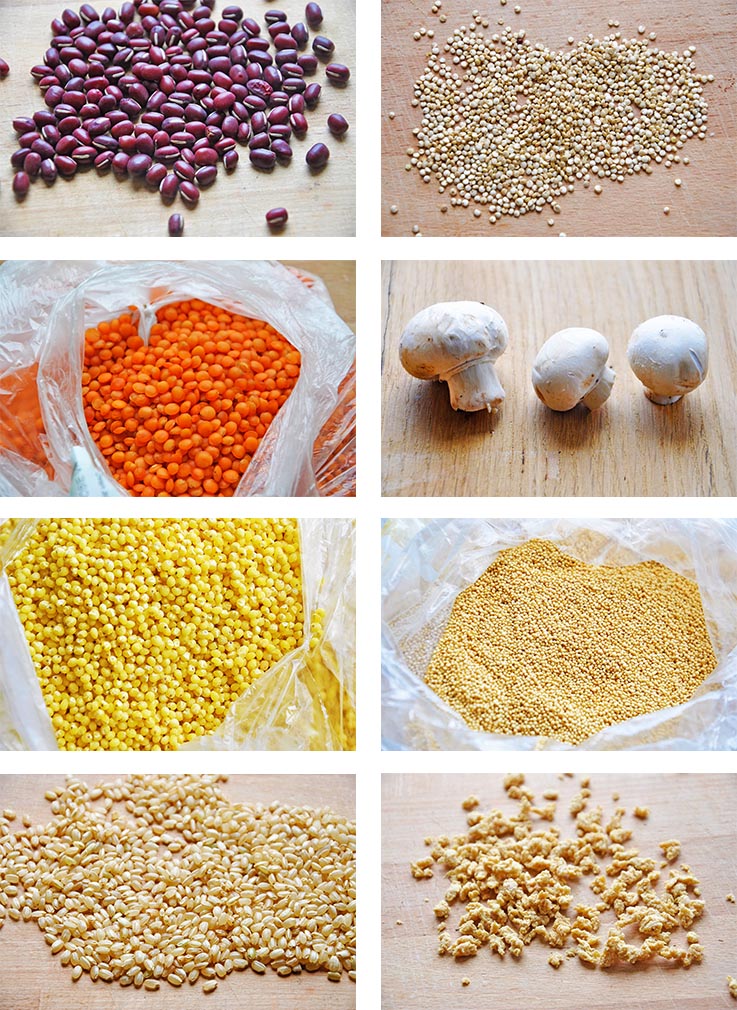
List of best plant-based proteins
- Seitan: Seitan is made from gluten and contains 25 grams of proteins per 100 grams making it the richest plant protein. It is a good source of selenium, iron, calcium, and phosphorus.
- Tofu, tempeh, and edamame: The origin of three of these foods are soybeans. Soybeans are high in proteins. They contain 10 – 19 grams of protein per 100 grams and also have iron and calcium.
- Lentils: Lentils are high fiber foods that contain protein, slowly digested carbs, folate, manganese, and iron. It contains 18 grams of protein per 240 ml cup.
- Chickpeas and beans: Both of these foods are rich in protein, complex carbs, fiber, iron, folate, phosphorus, potassium, and manganese. They contain 15 grams of protein per 240 ml cup.
- Nutritional Yeast: This plant protein contains 14 grams of protein per 28 grams. It is also a great source of zinc, magnesium, copper, manganese and all B vitamins. This is only in fortified yeast.
- Spelt and Teff: Spelt is made from wheat and gluten and teff is made from an annual grass (i.e. gluten-free). Both of these are referred to as ancient grains and provide 10 – 11 grams of proteins per 240ml cooked cup. They also contain fiber, iron, magnesium, phosphorus, and manganese.
- Hempseed and Chia seeds: Hempseed provides 10% grams of proteins per 28 grams and chia seeds contain 6 grams of protein per 35 grams. These also contain magnesium, iron, calcium, zinc, selenium, omega 3 and omega 6 fatty acids.
- Green peas: Green peas contains more protein than a cup of milk. It has 9 grams of protein per 240 ml cooked cup. It also contains over 25% of daily fiber, vitamin A, C, K, thiamine, folate, manganese, iron, magnesium, phosphorus, zinc, copper and B vitamins.
- Spirulina: This is made from blue-green algae containing 8 grams of protein per 30 ml (two tablespoons). It provides copper, magnesium, riboflavin, manganese, and potassium.
- Ezekiel bread: This is a bread made from organic, sprouted grains and legumes. It has more proteins and nutrients than traditional bread. It provides 8 grams of protein per two slices.
- Amaranth and Quinoa: These are ‘pseudocereals’ that contain 8 – 9 grams of protein per 240ml cooked cup. They also have complex carbs, fiber, iron, manganese, phosphorus, and magnesium.
- Soy milk: Made from soybeans and fortified with calcium, vitamin D and vitamin B12, soymilk has 7 grams of protein per 240ml cup.
- Oats: Oats contain a large amount of nutrition such as fiber, magnesium, zinc, phosphorus, folate and 6 grams of protein per 120ml cooked cup.
- Wild Rice: This food contains 7 grams of proteins per 240ml cooked cup. It is said to have 1.5 times the protein compared to other rice varieties. It also has fiber, copper, phosphorus and B vitamins.
- Nuts: Nuts are rich in fiber, healthy fats, iron, calcium, magnesium, selenium, phosphorus, Vitamin E and Vitamin B. They contain 5-7 grams of protein per 28 grams. This also applies to natural nut butter.
- Fruits and veggies: Selected fruits and vegetables have higher protein content than others. Protein-rich veggies include broccoli, spinach, asparagus, artichokes, potatoes, sweet potatoes, and Brussels sprouts. They have 4-5 grams of protein per cooked cup. Guava, cherimoyas, mulberries, blackberries, nectarines, and bananas are protein-rich fruits with 4-5 grams of protein per cup.
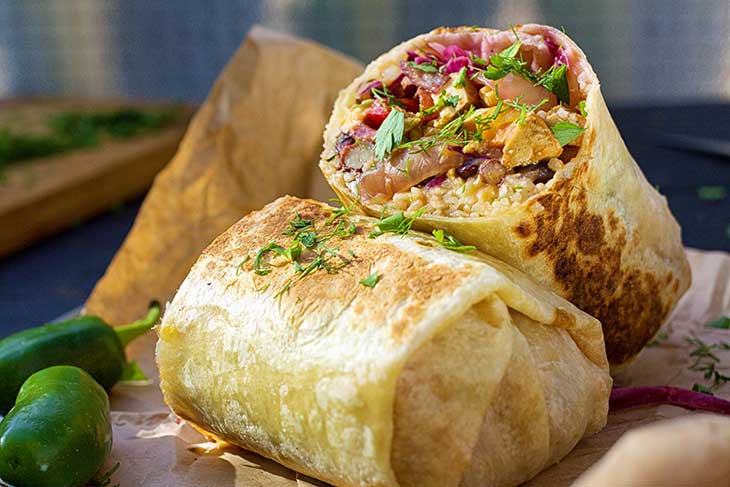
Guide to meeting the protein requirements
Adults: Based on the 0.36 gram of protein per pound body weight calculated above, an average male weighing 154 pounds will need ~56 grams of protein and for average female weighing 126 pounds, it is ~46 grams of protein. Keep in mind that these are the minimum requirements, so you can go above slightly or add more if you have an active lifestyle and plan on building muscle. Given below are two sample menus, very basic – just so you can see how easy it easy to meet the minimum requirements. The menu can be adjusted as per an individual’s protein requirements and added with other foods to meet daily calorie needs.
| MENU SAMPLE FOR MEN | ||
| Food Item | Proteins (grams) | |
| Breakfast | 1 cup Oatmeal | 6 |
| 1 cup Soy Milk | 7 | |
| 1 medium bagel | 10 | |
| Lunch | 2 slices whole wheat bread | 7 |
| 1 cup vegetarian baked beans | 12 | |
| Dinner | 5 oz. Tofu | 12 |
| 1 cup cooked broccoli | 4 | |
| 1 cup cooked brown rice | 5 | |
| 2 tbsp. almonds | 4 | |
| Snacks | 2 tbsp. peanut butter | 8 |
| 6 crackers | 2 | |
| TOTAL | 77 GRAMS | |
| MENU SAMPLE FOR WOMEN | ||
| Food Item | Proteins (grams) | |
| Breakfast | 2 slices whole wheat toast | 7 |
| 2 tbsp. peanut butter | 8 | |
| Lunch | 2 tbsp. almonds | 4 |
| 6 oz. soy yogurt | 6 | |
| 1 baked potato
|
3 | |
| 1 cup cooked lentils | 18 | |
| 1 cup cooked bulgur | 6 | |
| 1 cup soymilk | 7 | |
| TOTAL | 59 GRAMS | |
Children: The proteins that children require differ based on age, gender, and weight of the child. Toddlers in their first two years should get their proteins from breast milk which contains 5% protein. As they grow out of breast milk, they can be introduced to starch-based foods such as sweet potatoes, rice, potatoes, and beans that contain 6%, 8%, 10%, and 20% proteins respectively. Children between the ages of 4 and 13 need about 0.45 grams of protein per pound of their weight. This is roughly 25 – 30 grams of protein each day. Children of this age can get their proteins from soybeans, quinoa, hemp, nuts, legumes, seeds, whole grain bread, hummus, nut butter, tofu, peas, fortified soy beverages, and fortified yogurt.
Athletes: An athlete’s lifestyle is different from an average person’s lifestyle. Because of the daily high-level intense activity, they require more proteins in their diet. It has been a common concern among athletes and coaches that vegan diet may not provide the daily proteins required for athletes to be healthy. A study conducted by the Academy of Nutrition and Dietetics, Dieticians of Canada (DC), and American College of Sports Medicine (ACSM) state that the recommended protein intake for an athlete ranges from 1.2 to 2.0 g per kg of body weight per day. Sufficient energy is required for an athlete to optimize protein metabolism when energy is reduced. Although this is easily achieved by meat intake, it can also be achieved in vegan diets. However, protein calculations are required here. For example, a female athlete cannot get the required proteins by adding chickpeas to a salad. In order to get the required proteins, she will have to eat a cupful of chickpeas. Athletes should ensure that they consume multiple sources of protein throughout the day.
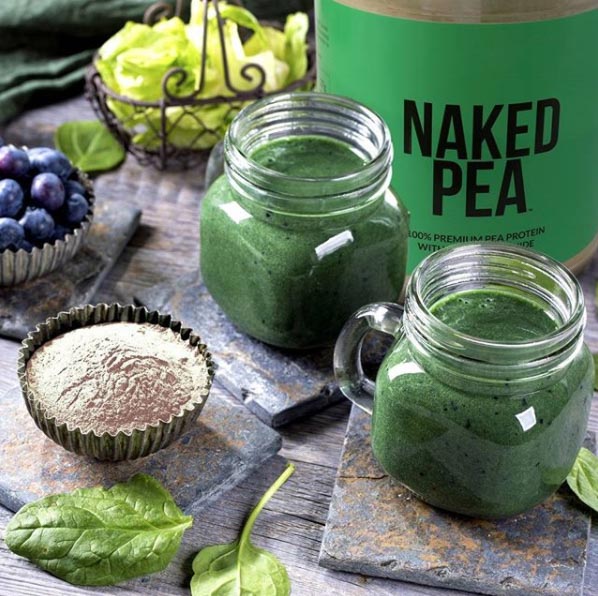
Vegan protein supplements
The most common protein supplements used are protein powders. These can be really useful when someone needs immediate protein after a workout. It is not limited to athletes alone. It is useful for anyone who is working out at the gym or goes for everyday runs. However, it is important to choose a protein powder that works best for us individually.
Personally, I prefer the Naked Nutrition Protein Powders. They have a wide range of options, including powdered peanut butter, organic brown rice protein powder and more!
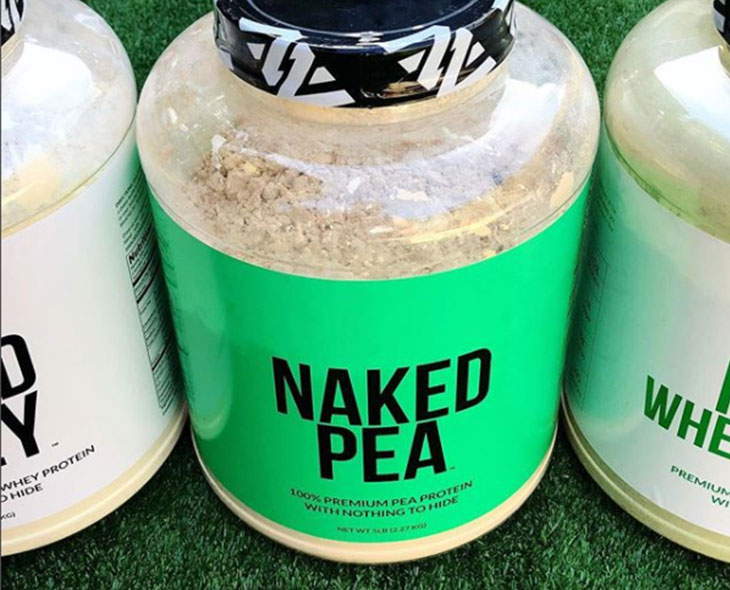
Bottom Line
There are many myths and misconceptions about the nutritional value available in vegan diets and plant-based foods. But research today shows that all the required nutrition, especially proteins for a human body can be achieved just as easily in vegan diets as any other meat-based diets.
Sources:
- https://www.vrg.org/nutrition/protein.php
- https://www.nomeatathlete.com/protein-for-athletes/
- https://www.healthline.com/nutrition/protein-for-vegans-vegetarians#section17
- https://well.blogs.nytimes.com/2012/06/20/can-athletes-perform-well-on-a-vegan-diet/
- https://www.verywellfit.com/best-vegan-protein-powders-4159964
- https://www.forksoverknives.com/diet-children-and-the-future/#gs.zQF2gE4
- https://www.epicurious.com/expert-advice/how-much-protein-do-kids-really-need-article
- Paper: Position of the Academy of Nutrition and Dietetics, Dietitians of Canada, and the American College of Sports Medicine: Nutrition and Athletic Performance;
If you make this, please leave a review and rating if you liked this recipe! ★★★★★

